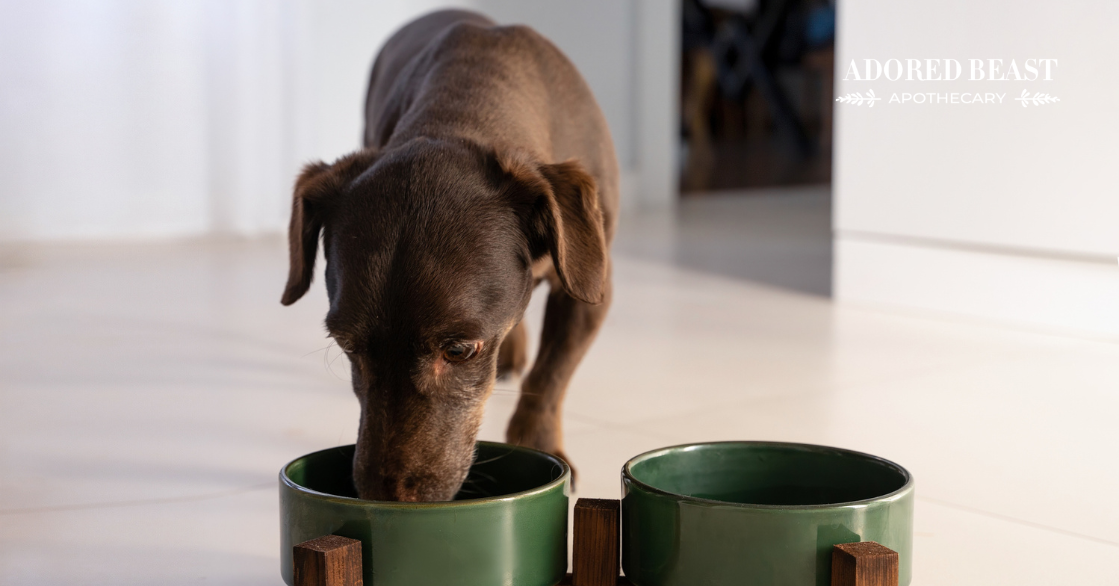We are all familiar with the word histamine, or at least we should be. It’s part of what causes the reactive/allergic/trauma response to something like a bee sting, hives, etc. It’s the body’s defence against foreign proteins in the blood. The body sees an “attack”, releases mast cells that then release histamine, and this causes the body to react.
It’s also what causes people and vets to reach for antihistamine drugs like Benadryl or Vanectyl P (big guns with steroids).
Initially, this histamine reaction is a good thing, targeting only true invaders. However, the problem starts when a protein that should be non-reactive becomes either a TRUE allergy or leaks into the bloodstream and an “allergy” diagnosis is next. Sometimes, though, it’s not really an allergy.
This happens when the body has too much histamine. Sometimes you’ll also hear “histamine intolerance.”
The two most common reasons for this are:
- When the body either absorbs too much histamine from the GI tract (leaky gut syndrome)
- When it does not break it down well in the liver
Trauma and inflammation of the gut damages an enzyme in the small intestine called Diamine Oxidase (DAO), which is responsible for breaking down histamine in the gut. This causes the DAO levels to decline and naturally occurring histamines in the diet may not break down effectively. Even if DAO enzyme activity is good, if the gut’s dealing with trauma or its barrier function is severely compromised, compounds from the digestive tract can leak in before they are fully processed. This is called leaky gut syndrome. This then increases the load on the liver, affecting the liver’s ability to degrade histamine as well. So, this impacts both the gut and the liver… that’s no good!
So, whether you’re dealing with chronic skin disease, asthma, equine COPD and hives or initially trying to be proactive, focusing on improving liver function and the GI tract are 2 KEY tools for doing that – and yes, that’s for all of you pet parents out there dealing with hay fever…
A Healthy Gut & A Healthy Liver
A Healthy Gut Environment = balanced histamine and immune system.
The gut microbiome is made up of trillions of bacteria, viruses and fungi. While some bacteria are associated with disease (we call those harmful bacteria), others are actually really important for the immune system (we think of these as the helpful bacteria). A healthy gut environment has way more helpful bacteria telling the harmful bacteria to hit the curb!
To create that healthy environment:
- bring on the pre- and probiotics
- opt for fresh food
- avoid harsh antibiotics when you can
- reduce stress
A Healthy Liver = correct breakdown of histamine along with a million other things the liver does!
After the skin, the liver is the largest organ in the body, with just as large a task list. It’s responsible for detoxification, for flushing out all those toxins your animal takes in, and cleaning the blood of impurities.
There are lots of amazing herbs that aid the liver, helping to boost effectiveness and allowing it to break down and filter out some of that extra histamine.
- Celandine (Chelidonium) – helps battle harmful organisms at the same time protecting the liver
- Dandelion (Tracacum Officinate) – helps detoxify the liver
- Barberry (Berberis) – inhibits the growth of harmful bacteria and boosts the immune system
- Milk Thistle (Cardus Marianus) – stabilizes liver cell membranes, protects from free radical damage, helps regenerate healthy liver cells and boosts the organ’s ability to filter toxins from the blood.
These herbs are great on their own, but when you combine them they work synergistically to have an even greater effect. Nature really is incredible, isn’t it?
Add some or all of these to your animal’s diet (and your own!) to keep the liver healthy and to help it deal with that histamine before it leads to itching, scratching, biting…
Remember … Remove~Rebalance~Replenish~Restore
Instead of … Suppress~Repress~Digress~Disease












